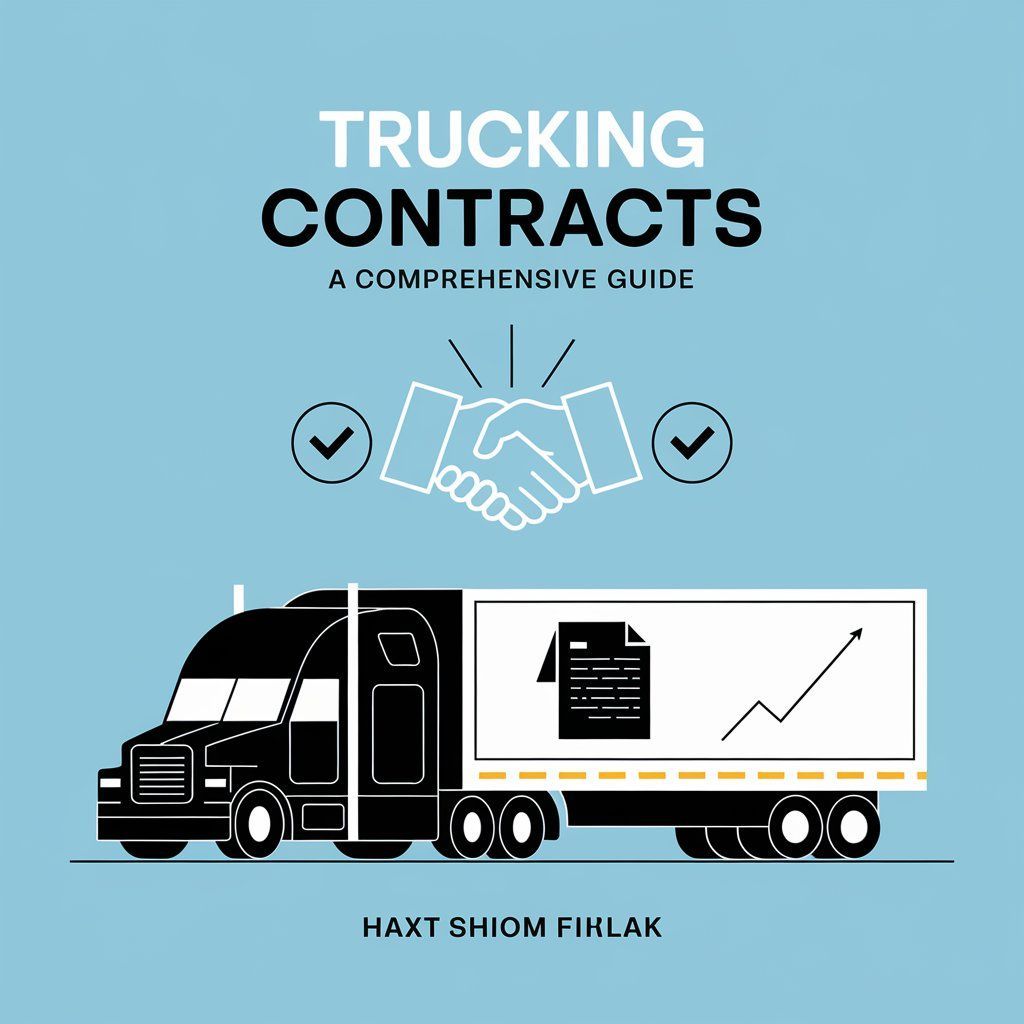Top Trucking Apps Every Trucker Should Have on their phone and Why
This is a subtitle for your new post

In today's digital age, truckers have access to a variety of mobile apps that can significantly enhance their efficiency, safety, and overall job satisfaction. From navigation to load management, maintenance to fuel tracking, these apps provide invaluable tools for truckers on the road. In this blog, we'll explore the top trucking apps every trucker should have on their phone and explain why they are essential. We'll cover five key categories: trucker navigation apps, load management apps, maintenance and inspection apps, fuel management apps, and weather and road conditions apps.
Trucker Navigation Apps
Efficient navigation is critical for truckers to ensure timely deliveries and avoid unnecessary detours or delays. Trucker-specific navigation apps offer features tailored to the unique needs of commercial drivers, such as route planning that accounts for truck restrictions, weigh stations, and fuel stops.
Examples:
- TruckMap: This app provides turn-by-turn navigation specifically designed for truckers, including information on truck stops, rest areas, and parking availability. It also helps drivers avoid low bridges and weight restrictions.
- CoPilot Truck GPS: Offering offline navigation, CoPilot Truck GPS includes truck-specific routing, real-time traffic updates, and points of interest such as fuel stations and rest areas. It helps truckers save time and fuel by avoiding restricted routes and congested areas.
Load Management Apps
Managing loads efficiently is crucial for maximizing productivity and profitability. Load management apps streamline the process of finding, booking, and managing freight loads, making it easier for truckers to stay organized and on schedule.
Examples:
- DAT Load Board: This app provides access to one of the largest load boards in the industry, allowing truckers to find loads quickly and easily. It includes features such as real-time load updates, broker credit scores, and detailed load information.
- Truckstop.com Load Board: Known for its comprehensive load search capabilities, this app helps truckers find loads, view rate information, and connect with brokers. It also offers features like load tracking and payment assurance to help drivers manage their business more effectively.
Maintenance and Inspection Apps
Regular maintenance and thorough inspections are essential for ensuring the safety and reliability of a truck. Maintenance and inspection apps help truckers keep track of maintenance schedules, perform inspections, and record any issues that need attention.
Examples:
- KeepTruckin: While primarily known for its electronic logging device (ELD) features, KeepTruckin also offers tools for vehicle inspection and maintenance tracking. Drivers can perform pre-trip and post-trip inspections, log defects, and schedule maintenance.
- Fleet Complete: This app provides comprehensive maintenance and inspection management, allowing truckers to track vehicle health, log inspection results, and receive maintenance reminders. It helps ensure that trucks remain in optimal condition, reducing the risk of breakdowns and costly repairs.
Fuel Management Apps
Fuel is one of the largest expenses for truckers, so effective fuel management is essential for controlling costs and maximizing profits. Fuel management apps help truckers find the best fuel prices, track fuel usage, and optimize fuel efficiency.
Examples:
- GasBudd: This popular app helps truckers find the cheapest fuel prices along their route, with real-time updates and user-submitted price reports. It also offers features like fuel price predictions and rewards for fuel purchases.
- Fuelbook: Designed specifically for truckers, Fuelbook provides information on fuel prices at over 7,000 truck stops across North America. It also includes features like route planning, diesel exhaust fluid (DEF) locations, and trucking-specific discounts.
Weather and Road Conditions Apps
Staying informed about weather and road conditions is critical for safe and efficient trucking. Weather and road conditions apps provide real-time updates on weather forecasts, traffic incidents, and road closures, helping truckers plan their routes and avoid hazards.
Examples:
- Weather Channel App: This comprehensive weather app offers detailed forecasts, severe weather alerts, and radar maps. Truckers can use it to stay informed about changing weather conditions and plan their routes accordingly.
- Waze: While not truck-specific, Waze is a valuable tool for real-time traffic updates, road hazards, and accident reports. Truckers can use Waze to navigate around traffic jams, construction zones, and other obstacles, ensuring a smoother and safer journey.
In conclusion, incorporating these essential apps into your daily routine can significantly enhance your efficiency, safety, and overall experience on the road. Whether it's navigating complex routes, managing loads, maintaining your vehicle, optimizing fuel usage, or staying informed about weather and road conditions, these apps provide invaluable tools for truckers.
Enhance Your Trucking Business with Atlas Factoring
At Atlas Factoring, we understand the unique challenges faced by truckers. Our factoring services provide flexible financing solutions to help you manage cash flow and seize new opportunities. Apply for factoring services with Atlas Factoring today and experience the benefits of immediate cash flow, free broker credit checks, and unparalleled support. Take your trucking business to new heights with Atlas Factoring!











Share On: